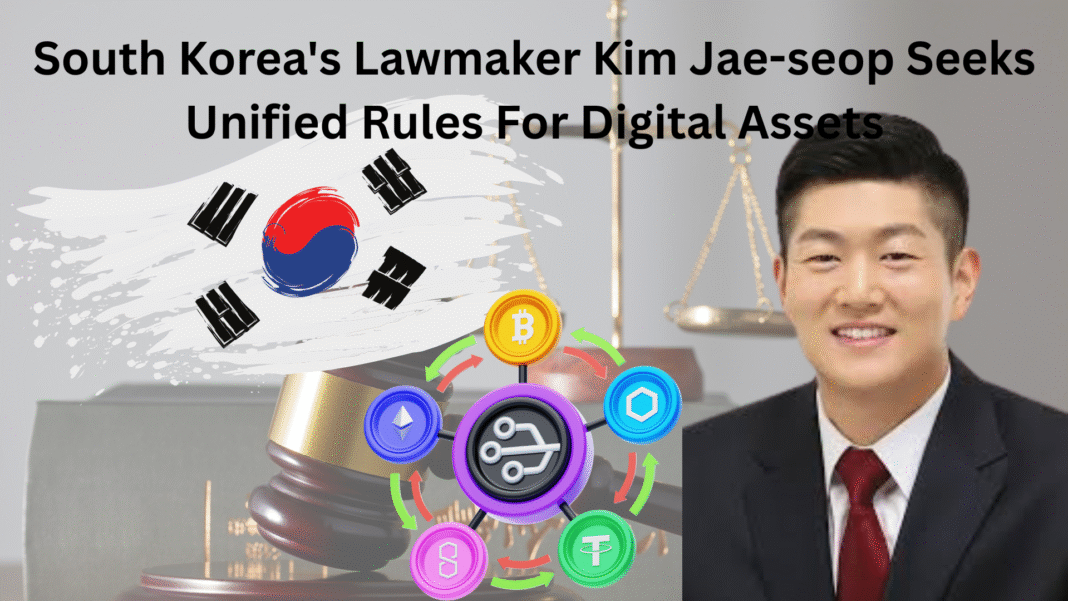People Power Party lawmaker Kim Jae-seop introduced the Digital Asset Market Integration Act on September 24 at the National Assembly in Seoul. The bill covers the whole virtual asset market.
Kim says the goal is to build a legal base for the industry and to stop investor harm. He framed the move as a single, unified law that would set rules, guard user assets and bring clarity to businesses and regulators.
Scope and core measures
The proposal defines what a digital asset is and sets up a licensing and registration system for businesses. It would also require governance rules and internal controls within companies.
The bill seeks to protect users by imposing obligations on firms that hold customer funds. It includes rules to curb unfair trading practices and creates special rules for stablecoins.
Stablecoins and redemptions
Under the bill, stablecoin issuers would face stricter approval rules, and the law would require issuers to meet stronger standards before they can operate. It would also force faster redemptions.
The proposal says stablecoin holders must be repaid within 5 days after they ask for a redemption. Lawmakers wrote these steps to try to reduce risks for ordinary investors.
Derivatives and exchanges
The bill treats digital asset derivatives as exchange-traded products, and that change would allow domestic exchanges to run derivatives markets legally.
Supporters say this would give local platforms clearer authority to offer futures and other complex products. The measure also sets special rules for such derivatives to match their unique risks.
Also Read: South Korean Authorities Dismantle Crypto Scam Ring Worth $15 Million That Targets Korean Investors
New brokerage model
Kim’s plan would create a dedicated digital asset brokerage system. The aim is to cover services that current financial laws miss. The new framework would include lending, brokerage and credit services tied to digital assets.
Lawmakers drafting the bill argue this will close legal gaps and bring more transparency to those activities.
Industry context and other bills
This is the third industry-specific crypto bill to reach the National Assembly. Democratic Party lawmaker Min Byeong-deok sent a bill in June, and Rep. Lee Kang-il submitted another in September.
Rep. Kim Eun-hye from the People Power Party filed separate rules focused on stablecoins. Kim Jae-seop’s proposal is the first to offer a full, industry-wide regulatory plan from the opposition.
Why do sponsors want fast action?
Kim said quick approval matters, and he called the bill a balance between protecting investors and aiding industry growth.
He warned that delays could lead to more public harm and weaker national competitiveness. Backers argue that clear rules will help honest firms and curb illicit activity.
Ongoing probes and market pressure
The bill comes as local authorities expand probes into suspected illegal remittances tied to crypto. UnoCrypto reported that domestic virtual-asset investors and operators are part of a widening investigation.
Officials are looking at transactions that may involve money laundering and illicit foreign exchange. The probes add urgency to calls for a clear legal framework.
Political and market implications
If passed, the law would reshape how exchanges, issuers and brokerages operate in South Korea. It would give regulators new tools to police markets and protect customers.
At the same time, firms would face higher entry requirements and oversight. That could slow some business moves but may also boost confidence among institutional players.
Kim’s unified bill tries to bring order to a fast-moving sector, and it aims to set clear rules, protect users and allow more types of crypto business to function legally.
With probes and competing bills in play, the outcome will depend on debate in the National Assembly and how regulators react. Lawmakers on all sides say they want to avoid investor losses while keeping room for industry innovation.
Also Read: South Korea’s BDACS Debuts First Korean Won–Backed Stablecoin KRW1 On Avalanche


